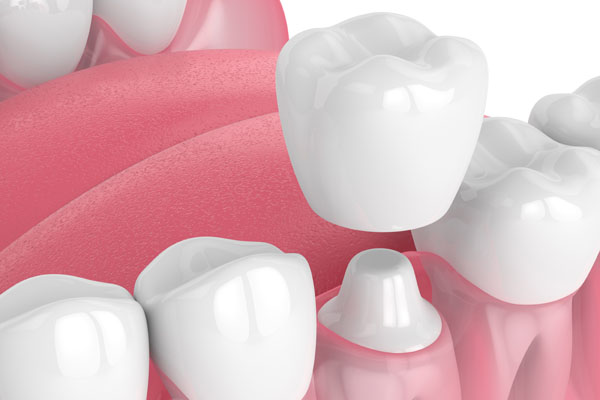Implant Dentistry and the Importance of Healthy Gums
 Implant dentistry offers durable and natural-looking solutions for tooth loss. Read on to learn more about dental implant restorations. These titanium-based prosthetic tooth roots are implanted directly into the jawbone to offer a solid link to a dental prosthesis, such as crowns or a dental bridge. Dental implants can only be placed successfully if the gums and jawbone are healthy enough.
Implant dentistry offers durable and natural-looking solutions for tooth loss. Read on to learn more about dental implant restorations. These titanium-based prosthetic tooth roots are implanted directly into the jawbone to offer a solid link to a dental prosthesis, such as crowns or a dental bridge. Dental implants can only be placed successfully if the gums and jawbone are healthy enough.
The importance of healthy gums in implant dentistry
Gum and jawbone health is essential in determining whether a patient’s mouth can sustain an implant. The condition of the gums and bone in the mouth is critical for a long-lasting, healthy dental implant.
Gum health is important for dental implants for the following reasons:
- Implants will not get adequate support if the gums and bones have been damaged. A dental implant is designed to sit firmly in the gum and jaw tissue, effectively substituting the natural tooth roots and offering a sturdy base to place a crown, bridge, or permanent denture.
- When the gums are healthy, they fit snugly around your implant, protecting it and helping it stay put. The healthy jaw tissue also forms a lasting link with the implant. The implant will not heal properly if your gums or jaw are weak, and it will not be secure.
- Gum recession may expose the root of the implant. If the gums continue to recede after undergoing dental implant placement, the implant posts may become vulnerable to the bacteria and food particles present in the mouth. This makes it more difficult to maintain the implant in excellent condition, and it may get infected or need removal.
- Periodontal disease is a major source of infection. Since the same bacteria that cause gum disease may also cause peri-implantitis, a dental implant infection, the dentist will not recommend getting an implant until the periodontal disease has been managed effectively. Even with proper management of gum disease, if the patient has a fragile jawbone and their gum tissues have degenerated severely due to the disease, patients may not be eligible to get an implant.
The most significant risk of unhealthy gums is that there is a high chance of implant failure. Even while implant failure is always a tiny probability, the odds increase remarkably when periodontal disease is present. That implies the implant procedure may have to be repeated, resulting in additional time and expenses.
The solution to gum issues
Fortunately, many patients may still be able to get a dental implant even if their gum and bone tissues are not in optimal health. However, they will almost certainly need gum and bone grafts before the treatment. A grafting procedure involves implanting a chunk of bone and tissue materials into the gums and jaw to provide a solid, healthy foundation for the dental implant.
Ready to schedule an appointment?
The dentist will examine your oral health during a consultation to determine whether you are a candidate for implant dentistry restoration. Dental implant restorations offer a reliable and long-lasting way to replace missing teeth.
Request an appointment or call GK Dental PC at 617-826-6075 for an appointment in our Everett office.
Recent Posts
The tooth replacement process and timeline may vary for each patient based upon the specific steps that are needed to complete the restoration. The best way to determine the timeline for treatment is to visit an implant dentist. However, there is a tentative estimation for how long each step might take, which is discussed in…
Dental implants are often referred to by implant dentists as artificial tooth roots. This is because they work in a similar fashion as natural tooth roots. Dental implants hold replacement teeth (i.e. dental crowns) in a stable and strong position.By learning more about dental implants, you can determine if implant dentistry is right for you…
Implant dentistry makes everyday activities easier. After tooth loss occurs, certain activities can become more of a challenge, and it can affect the person’s appearance and level of confidence. The good news is that many restore their confidence level and improve their ability to eat, speak, and care for their smile each day with implant…


